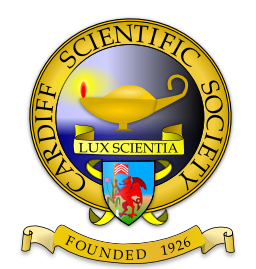☰ Cardiff Scientific Society


Challenge Chemistry
Professor Lesley Yellowlees
President of The Royal Society of Chemistry and University of Edinburgh
2nd October 2013

The Sir Martin Evans Lecture: Stem Cell Biology
Dr Robin Lovell-Badge
MRC National Institute for Medical Research
16th October 2013

The Commercialization and Exploitation of Knowledge
Professor Graham Richards
University of Oxford and IP Group Plc
30th October 2013

CRACking pancreatitis: understanding and treating an enigmatic disease
Professor Ole Petersen
Cardiff University
13th November 2013

Strategies for Brain Repair
Professor Stephen Dunnett
Cardiff University
27th November 2013

Breathing is bad for your Health
Professor I P Matthews
Cardiff University
11th December 2013

Ecological Consequences of Climate Change
Dr Hefin Jones
Cardiff University
8th January 2014

On the Geological Disposal of Nuclear Waste
Professor Hywel R. Thomas
Cardiff University
22nd January 2014

Bowel Cancer: Genetics, Biology and Drug Response
Sir Walter Bodmer
University of Oxford
5th February 2014

Malaise associated with Upper Respiritary Tract Illness
Professor Andy Smith
Cardiff University
19th February 2014

Designing for the Flintstones: How the products of the future might be better designed
Professor Steve Gill
Cardiff Metropolitan University
5th March 2014

Europe's Cosmic Explorers
Dr Chris North
Cardiff University
5th March 2014